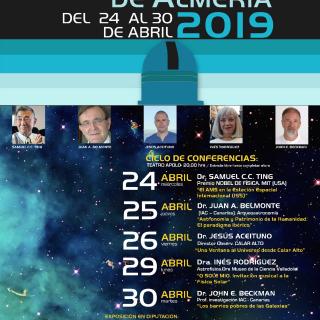Bibcode
Eliche-Moral, M. C.; Rodríguez-Pérez, C.; Borlaff, A.; Querejeta, M.; Tapia, T.
Bibliographical reference
Astronomy and Astrophysics, Volume 617, id.A113, 37 pp.
Advertised on:
10
2018
Journal
Citations
60
Refereed citations
59
Description
Context. Major mergers are popularly considered too destructive to
produce the relaxed regular structures and the morphological inner
components (ICs) usually observed in lenticular (S0) galaxies.
Aims: We aim to test if major mergers can produce remnants with
realistic S0 morphologies. Methods: We have selected a sample of
relaxed discy remnants resulting from the dissipative merger simulations
of the GalMer database and derived their properties mimicking the
typical conditions of current observational data. We have compared their
global morphologies, visual components, and merger relics in mock
photometric images with their real counterparts. Results: Only
Ȉ1-2 Gyr after the full merger, we find that: 1) many remnants (67
major and 29 minor events) present relaxed structures and typical S0 or
E/S0 morphologies, for a wide variety of orbits and even in gas-poor
cases. 2) Contrary to popular expectations, most of them do not exhibit
any morphological traces of their past merger origin under typical
observing conditions and at distances as nearby as 30 Mpc. 3) The merger
relics are more persistent in minor mergers than in major ones for
similar relaxing time periods. 4) No major-merger S0-like remnant
develops a significant bar. 5) Nearly 58% of the major-merger S0
remnants host visually detectable ICs, such as embedded inner discs,
rings, pseudo-rings, inner spirals, nuclear bars, and compact sources,
very frequent in real S0s too. 6) All remnants contain a lens or oval,
identically ubiquitous in local S0s. 7) These lenses and ovals do not
come from bar dilution in major-merger cases, but are associated with
stellar halos or embedded inner discs instead (thick or thin).
Conclusions: The relaxed morphologies, lenses, ovals, and other ICs of
real S0s do not necessarily come from internal secular evolution, gas
infall, or environmental mechanisms, as traditionally assumed, but they
can result from major mergers as well.
Full Tables A.2-A.4 are only available in electronic form at the CDS via
anonymous ftp to http://cdsarc.u-strasbg.fr
(ftp://130.79.128.5) or via http://cdsweb.u-strasbg.fr/cgi-bin/qcat?J/A+A/617/A113
Related projects

Kinematic, Structural and Composition Studies of the Interstellar and Intergalactic Media
The basic objective of the broject is to investigate the evolution of galaxies by deepening our understanding of the interaction between the insterstellar medium and the stars.The main technique which we use is the two-dimensional kinematic study of whole galaxies observed using our instrument:GHaFaS, a Fabry-Perot interferometer on the William
Prof.
John E. Beckman